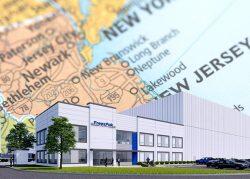The New Jersey Highlands Region won’t be high on industrial developers’ list anymore.
The state’s Highlands Council prohibited warehouse development in 398,000 acres of the 860,000-acre region, NorthJersey.com reported. The independent state agency has the power to set standards in the region, which provides drinking water to nearly half of the state.
The area covers more than 1,250 square miles and touches 88 municipalities, some of which — such as West Milford and Glen Gardner — are entirely in the preservation area.
The ban specifically targets distribution and fulfillment centers in northwest regional communities. Proponents say the industrial properties destroy the scenic region, while critics of the ban point to their economic and benefits and tax revenue.
The action is likely to harm the warehouse and transportation industries and trade, responsible for one-eighth of jobs in the state, according to the U.S. Census Bureau.
The ban has exceptions. Warehouses will still be allowed in existing community zones, redevelopment areas and regional growth centers. Municipalities in the region’s “planning area” — as opposed to the “preservation area” — will be exempt unless they opt into the Regional Master Plan.
Planning area communities will still face restrictions, though. For instance, warehouse properties larger than 500,000 square feet and on a state highway will need to be within three miles of an interstate exchange.
North Jersey was one of the hottest industrial real estate markets during the pandemic, prized by warehouse tenants for its proximity to major highways, transportation hubs and access to the New York metropolitan area.
Residents, while continuing to shop prolifically online, have grown increasingly wary of industrial development, though, complaining about pollution, traffic and community character. But local government officials often prefer warehouse projects to residential development because they don’t push school taxes up by adding students.
— Holden Walter-Warner
Read more



